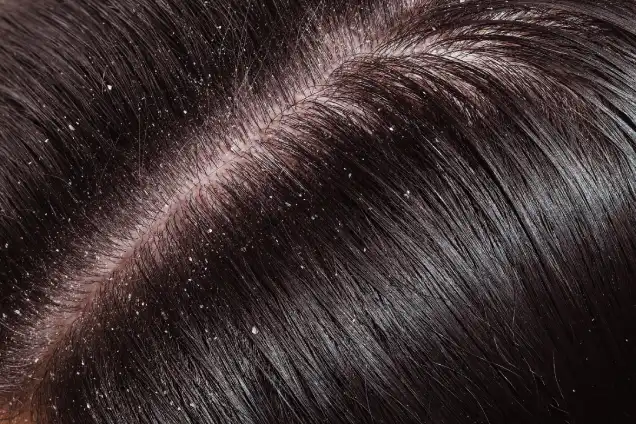Treatment Options:
1. Anti-Dandruff Shampoos
- Zinc Pyrithion: This compound reduces the number of fungus on the scalp (e.g., Head & Shoulders shampoo). However, recently, there are many articles published that it may cause DNA damage. It is banned in the European Union. However, in India less than 1% formulation is allowed as rinse off products. At this concentration, it is not known to produce such damages.
- Selenium Sulfide: Reduces fungus and slows down skin cell turnover (e.g., Selsun Blue). Selenium sulfide he is known to cause toxicity when ingested. However, topical application as shampoo is not known to cause any systemic toxicity as the absorption is less likely when the skin barrier is intact.
- Ketoconazole: Antifungal that targets Malassezia (e.g., Nizoral). It is used as 1% and 2% shampoos.
- Coal Tar: Slows down the turnover of skin cells (e.g., Neutrogena T/Gel).
- Salicylic Acid: Helps remove scales and flakes from the scalp.
2. Proper Scalp Care:
- Regular shampooing to reduce oil and skin cell buildup.
- Gently brushing hair daily to distribute scalp oils evenly.
- Avoiding harsh hair products that can irritate the scalp.
3. Lifestyle Changes:
- Managing stress, as stress can worsen dandruff.
- Eating a balanced diet rich in zinc, B vitamins, and healthy fat. Reducing the carbohydrate intake, especially the refined sugars, do help incorrect the hormonal imbalance.
- Getting adequate sunlight exposure, which helps to improve your vitamin D levels, which can help improve symptoms in patients with vitamin D deficiency.
4. Home Remedies:
- Tea Tree Oil: Known for its antifungal properties; can be added to shampoos. However, as a standalone treatment, it may not be of use.
- Aloe Vera: Aloe vera is known for its anti-inflammatory and soothing properties .Soothes the scalp and reduces flaking. Direct application to the scalp from the plant is not advisable as it may cause irritation.
- Apple Cider Vinegar: Acetic acid reduces the scalp's pH and fights fungi. however, too much application can lead to dry scalp.
If over-the-counter treatments do not work, or if the dandruff is severe, consult a dermatologist for a tailored treatment plan.
